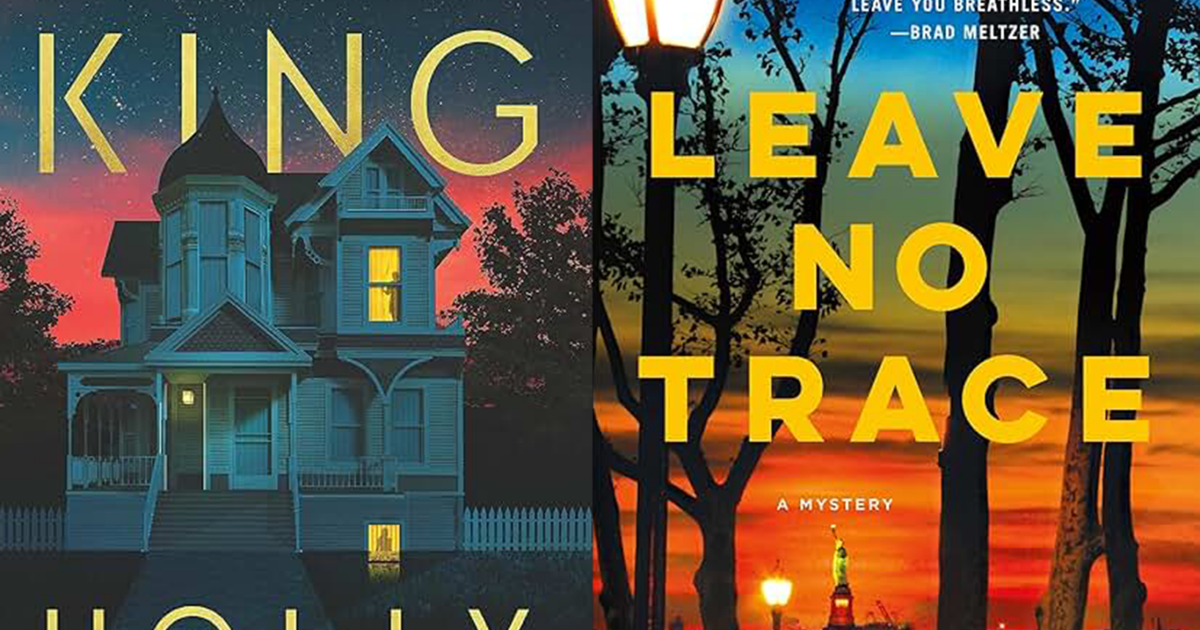
Sometimes, the lines are obscured in readers’ minds when choosing their next best read.
When I think of the yesteryears of Ernest Hemingway, Mark Twain, J.R.R. Tolkien, and Homer, I know I was guaranteed an outstanding good novel, their stories’ plots infused with an inescapable marvel of exploration and high stakes.
These days, the crowded publishing market of contemporary authors whose works are occupied with high-tension and enigmatic angst are the late greats of Clive Cussler, Michael Crichton, David Baldacci, Dean Koontz, and John le Carre, to name a few.
Recently, I have devoured and relished many new titles in the suspense and thriller genres. Master of suspense, Jon Land, whose varied work includes popular titles such as the Caitlin Strong fifth-generation Texas ranger suspense series, “Murder, She Wrote,” and in the last two years, the Margaret Truman’s Capital Crime books, is back, co-writing with Jeff Ayers on a brand-new, high-octave series featuring Special Agent Michael Walker of the National Park Service in “Leave No Trace.”
Set against the infamous New York City backdrop, a threat of attacks hits the Big Apple as a radical domestic terrorist group threatens to assault America’s cultural symbols, such as the Statue of Liberty, in a formidable statement of supremacy.
When fifteen-year-old Daniel Logan witnesses an imminent threat on Liberty Island, his life is in immediate peril by terrorists who will stop at nothing to destroy the recorded footage on the boy’s phone of a plan to bomb the Statue of Liberty.
Michael places Danny into protective custody, but it may not be enough for the shrewd, dangerous enemies who are threatening to pull out all the stops to bury the truth of their savage plan to rage war on America.
“Leave No Trace” travels from coast to coast, to Seattle, Washington, Virginia, St. Louis, to New York City, the U.S. Treasury Department, and Philadelphia.
The heightened danger of more destruction looms in every tense chapter. Land and Avery are at their best when creating taut, action-packed scenes. Short, succinct chapters create white-knuckle worry and keep the reader turning pages. Told in knife-sharp suspense, rich prose, and characters that resonate in a mirror reflection of today’s timely cultural issues, “Leave No Trace” is an investment in entertainment and a powerful social commentary.
Stephen King’s latest suspense novel, “Holly,” brings back one of his most-loved characters, Holly Gibney, a detective with plenty of OCD issues who stands out in the minds of many of King’s constant readers.
Holly was last seen in the Bill Hodge trilogy, “The Outsider,” and made a cameo in one of the short story collections, “If It Bleeds.”
“Holly” is Holly Gibney’s full-length novel, front and center, as she investigates a series of mysterious disappearances in a midwestern town.
The book’s structure is a Columbo-like episode, where the reader knows who the monsters/villains are from the get-go—in this case, it is the two-legged variety—and we watch as Holly tries to disentangle the unsettling investigation.
Sometimes menacing and suspenseful, other times maddening and meandering, the reader tags along with Holly, trying to piece together the clues to help find a ruthless killer.
The book is stylishly arranged and written, but ultimately forgettable and not one of King’s finest in the same vein as “It,” “The Stand,” or “Misery.”
“Holly” is a straightforward detective novel with no supernatural or the usual horror fare that readers are familiar with old-school King, such as “The Tommyknockers” or “Salem’s Lot.” Unless you take into account the horror of King’s villains, a semi-retired octogenarian married couple, professors Rodney and Emily Harris, who harbor a dark, unholy secret in their basement. Though, due to the Columbo-esque structure, it isn’t much of a secret.
Holly finds the courage, strength, and dogged persistence to untangle the mystery. “Holly” is engaging and fun to read, and King does a fine job creating anxiety and fear, albeit low-key horror.
— Thomas Grant Bruso is a Plattsburgh resident who writes fiction and has been an avid reader of genre fiction since he was a kid. Readers and writers are invited to connect and discuss books and writing at www.facebook.com/thomasgrantbruso
